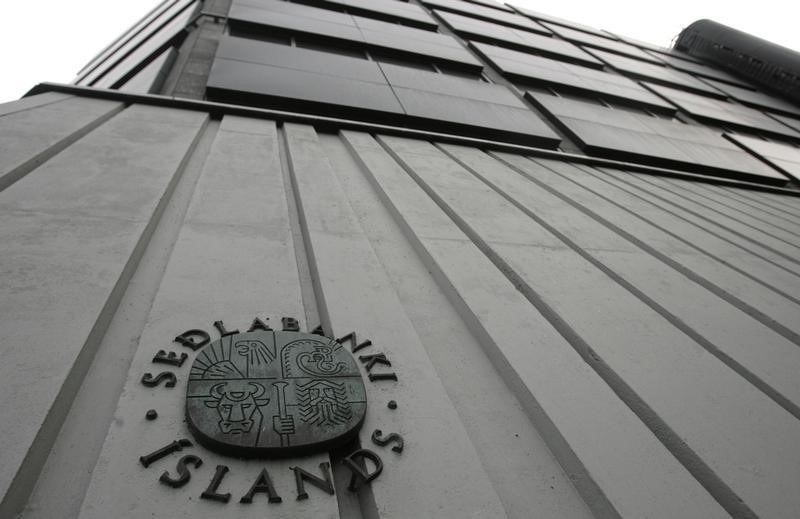STOCKHOLM (Reuters) - A worsening inflation outlook forced Iceland to hike interest rates and warn of more tightening on Wednesday, setting the island's policymakers apart from the majority of central banks still fighting low growth and meagre price pressures.
The Sedlabanki raised its seven-day deposit rate to 5.5 percent from 5.0 percent saying larger than expected wage hikes and growth expected to be around 4 percent this year had worsened the inflation outlook.
"Inflation is forecast to rise to 4 percent early in 2016 and to hover in the 4 to 4-1/2 percent range over the next two years before easing towards the target, as the forecast implies that the monetary stance will be tightened in the near future," the central bank said in a statement.
Iceland's economy has picked up in recent years, shaking off the effects of the 2008 crisis which saw its financial system collapse.
But capital controls put in place to protect the fragile currency remain in force, hampering foreign investment and leading to worries that domestic asset prices are over-inflated.
In June, the government laid out a plan to creditors of the country's collapsed banks as a step towards removing the controls and rejoining the international financial community.
Inflation in Iceland remains below the central bank's target of 2.5 percent, but is expected to pick up sharply thanks to bigger than expected wage deals as Icelanders play catch up after years of relative austerity.
The central bank expects nominal wages to rise around 8.5 percent per year through 2018.
Higher rates will also help offset the risk of a slump in the Icelandic currency when capital controls are removed.
The central bank's hawkish policy, triggered by the expected surge in wages, is in marked contrast to many of the world's policy-makers.
A slow-down in China, falling oil prices and jitters over growth in Europe have held down prices across many economies.
The U.S. Federal Reserve is widely expected to start hiking rates this year - which would be the first tightening since 2006 - but a recent currency devaluation by China could push that back.
Iceland's central bank will have to be cautious in raising rates, however.
Hot money flows taking advantage of higher interest rates in Iceland than countries like Japan - the so-called carry trade - were a major factor behind the country's 2008 crisis.

If Iceland has much higher rates than other countries, it will be hard to proceed with removing capital controls without destabilising the currency.